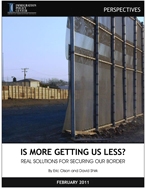 By Jeffrey Kaye
By Jeffrey Kaye
Before the onset of the Great Recession, immigrant labor was cited as a boom to the U.S. economy. In towns and cities across the country, immigrant labor—documented or otherwise—filled positions in growing businesses and industries where demand outpaced the supply of native-born workers. Since the onset of the economic downturn in 2008 and the rise in U.S. unemployment, some analysts and politicians—looking for a convenient scapegoat—have turned on that immigrant workforce and their employers, arguing that deporting eight million undocumented immigrant workers will create eight million new jobs for the native-born. This over-simplified equation ignores the complicated and inter-dependent roles that immigrants play in our economy. A 2010 study by the Fiscal Policy Institute on the economic contributions of immigrants in the 25 largest metropolitan areas in the United States makes the point well:
The results were clear: immigrants contribute to the economy in direct relation to their share of the population. In the 25 largest metropolitan areas combined, immigrants make up 20 percent of the population and are responsible for 20 percent of economic output. Together, these metro areas comprise 42 percent of the total population of the country, 66 percent of all immigrants, and half of the country’s total Gross Domestic Product.Read more...
Published On: Wed, Feb 09, 2011 | Download File





